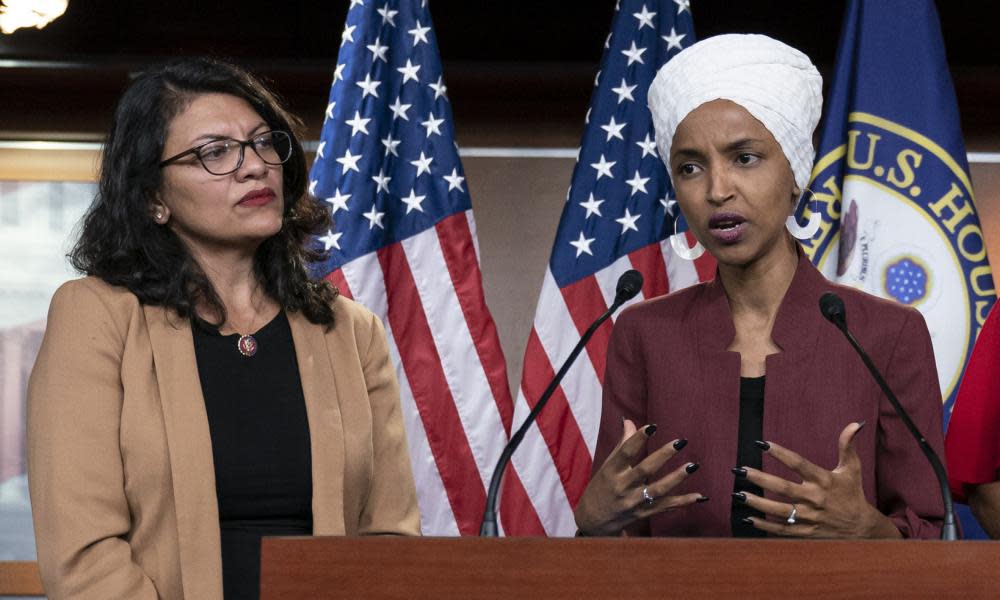The Guardian view on entry to Israel: a bar for Trump’s sake, not the country’s

Benjamin Netanyahu does not care for criticism, and his increasingly rightwing governments have sought to stifle it. But the decision to refuse entry to Ilhan Omar, and to offer Rashida Tlaib, who is of Palestinian descent, entry only on humanitarian grounds and with conditions, is an unprecedented step which has rightly provoked widespread alarm in both the US and Israel. Even the American Israel Public Affairs Committee, normally one of Mr Netanyahu’s most loyal defenders and a critic of the two Democratic congresswomen over their remarks on Israel, attacked the decision.
That the interior ministry, after initially saying that it would bar entry to both women, offered Ms Tlaib the chance to visit her elderly grandmother in the occupied West Bank on humanitarian grounds might have seemed a concession. But if anything it hardened the original decision: she would have been allowed in not as a politician and on the basis of her rights, but in a personal capacity, because the government had granted her a dispensation, after she promised to respect any restrictions and not to promote boycotts during her visit. No wonder she rejected the offer and will stay away.
The Israeli government justified its decision with 2017 legislation denying entry to supporters of the boycott, divestment and sanctions movement. The politicians are certainly not the first to fall foul of the law; the supreme court will next month hear an appeal against the attempt to deport the Israel-Palestine director of Human Rights Watch, Omar Shakir – the first time it has sought to remove someone already in the country on this basis.
But this latest decision is not one that Israel either wanted or planned to make. Its ambassador to the US had already said that the congresswomen would be allowed to visit “out of respect for the US Congress and the great alliance between Israel and America”. Following lobbying by Donald Trump, who tweeted that it would “show great weakness” if Israel allowed the two women to enter, it abruptly reversed course.
In fact, of course, Israel has shown great weakness in allowing its foreign relations to be dictated by the partisan political concerns of a man who may or may not win a second term and their impact upon its current prime minister. The decision may play well with many of the rightwing voters Mr Netanyahu is wooing ahead of next month’s election, the second this year. But his bigger concern is surely avoiding ruffling his buddy-buddy relationship with Mr Trump. This decision is less about Israel in 2019 and more about America in 2020.
Mr Trump is determined to make four young, progressive women of colour “the face of the Democrat party”. His racist suggestion that they should “go back [to the] places from which they came” was designed not only to play to bigots in his base and distract from other issues, but also to ensure that Nancy Pelosi and others sprang to their defence instead of distancing themselves. Ms Omar and Ms Tlaib, both Muslim, are his favourite targets. With this latest move, he has found another way to keep the cycle of news going. But it also threatens to destroy the bipartisan consensus that Israel has determinedly established over the years – as many there have pointed out.
This is an extraordinary extension of US political campaigning. Democratically elected legislators have had their rights curtailed by a foreign government at the invitation of the president. Mr Trump’s keenness to embroil a US ally in domestic political affairs is perhaps unsurprising given his nonchalance about Russian meddling in the 2016 election campaign. But this is a bad day for Israel, and a worse one for the US.

 Yahoo News
Yahoo News 
